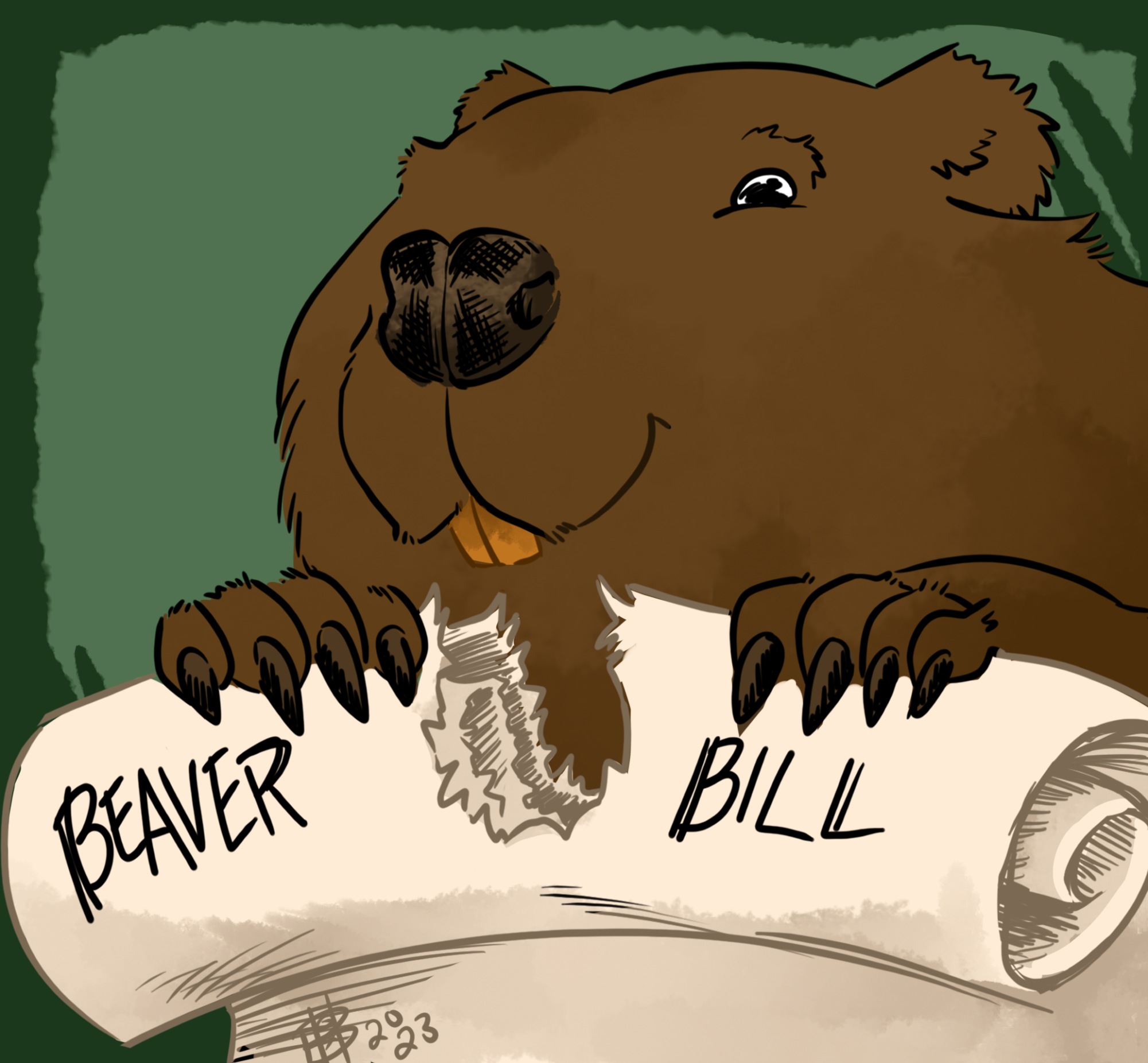Ensconced in well-constructed lodges of wood and mud, nature’s ingenious engineers have revolutionized Oregon’s rivers and streams. Creatures from all around the riparian habitat come to seek shelter within the beaver’s pond, some become permanent residents.
Although dams help create slow moving water sanctuaries for many riparian creatures, their building and foraging habits can be problematic to public land managers and private landowners.
On private lands, beavers are classified as predatory animals, which makes killing beavers permissible year-round without a permit, said Sristi Kamal, deputy director of the Western Environmental Law Center.
With a new bill awaiting the governor’s signature, this will change.
The Beaver Bill, formally known as House Bill 3464, will require a permit from the Oregon Department of Fisheries and Wildlife to use lethal measures for beaver control. In addition, the management of beavers will shift from agricultural regulators to the Oregon Department of Fish and Wildlife, according to the East Oregonian.
Beaver activity is destructive to timber, crops, and ornamental or landscape plants. In addition, increased water levels caused by the dams can interfere with septic systems, roads or other human structures, according to ODFW.
According to the United States Department of Agriculture, there are lethal and non-lethal methods to dealing with beaver disruption. Lethal methods include trapping and shooting, while non-lethal methods include exclusion, habitat modification, repellents and relocation.
Michele Dennehy, communication director of ODFW, stated The Beaver Bill “requires the department to publish data related to the take of beaver in an annual report that will be made available to the public.”
Currently, there is no accurate population monitoring of beavers in Oregon state. “Because of the predatory animal statute, the management of beavers (was) on the Oregon Department of Agriculture on private lands, and they don’t do any population monitoring of beavers,” said Kamal.
This bill will also change the label of beavers from “predatory” to “furbearers.” On private land, beavers are managed by the ODA, while on public lands, beavers are managed by the ODFW.
According to Kamal, “under Oregon statute, all animals that are considered as pests or harmful to agriculture or animal husbandry, (are considered) predatory animals.”
Beavers are known to eat trees, bark and branches. They are also quite fond of young saplings and can get into other crops growing on agricultural land, Kamal said.
Beavers, obstinate in their nature, are not easy to remove from wetlands. According to the USDA, beaver management can be costly and difficult, especially for well-established colonies.
According to Kamal, once a beaver family has identified a suitable habitat, they will likely stick to that habitat. Even if beavers are removed, another beaver family will likely recolonize the area. In addition, the population of that beaver family does not grow exponentially, it stays roughly the same size.
“It’s not going to double, triple and explode on your property. Beavers are very territorial, so they will actually keep other beaver families out. It’s just a matter of figuring out how to coexist with the beaver family you have,” Kamal said.
Beavers are classified as keystone species, meaning that other species in an ecosystem largely depend on them.
According to ODFW, woody debris from the dams helps provide safety to juvenile salmon and trout from predators. Leaf litter in beaver ponds helps stimulate aquatic insect production, which provides food to many fish, amphibians, waterfowl, bats and songbirds.
In addition, beaver wetlands help to improve water quality by trapping silt, removing excess nutrients, binding and removing toxic chemicals, and filtering out sediment, ODFW said.
According to Kamal, beavers can also help mitigate climate change impacts such as fires and droughts. “Beaver-modified habitats and beaver-created meadows and wetlands are really beneficial in creating firebreaks, water banks and water storage for wildlife and livestock,” said Kamal.
The Beaver Bill plans to address the role that beavers play in the mitigation of climate change effects.
“During the 2023 legislative session, there was much discussion focused on the importance of having beavers on the landscape due to their ability to modify landscapes to benefit fish, wildlife and humans,” Dennehy said.















































































































Guy • Aug 12, 2023 at 12:48 pm
Stop changing Oregon ! Pretty soon we wont be able to enjoy anything ! Because you will need a….. Permit for it !